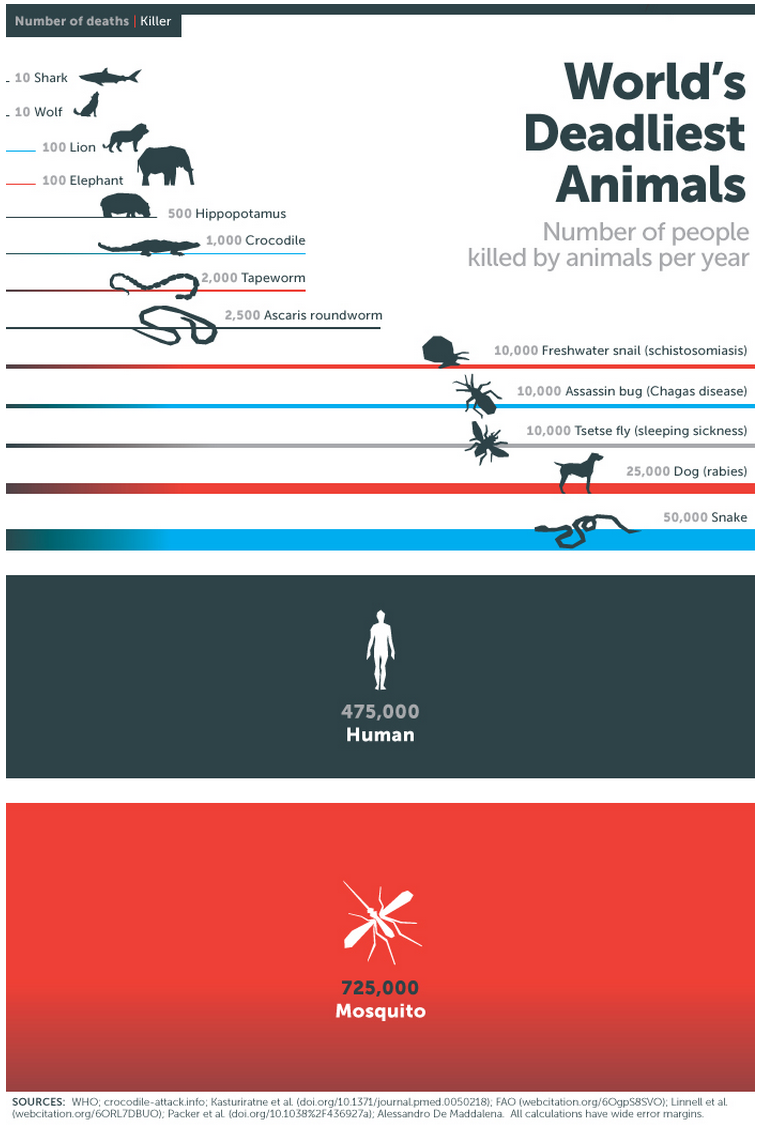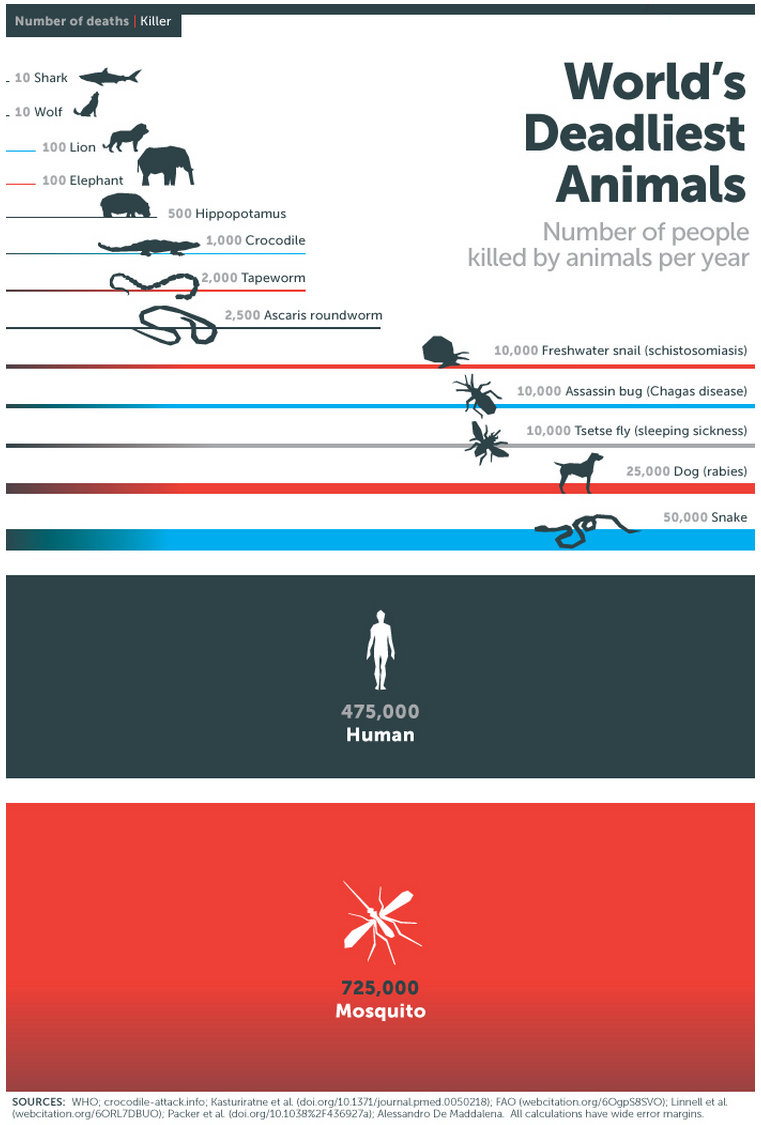Man is only the second deadliest animal

A free daily email with the biggest news stories of the day – and the best features from TheWeek.com
You are now subscribed
Your newsletter sign-up was successful
Bill Gates is best known as the founder of Microsoft, but he's been making waves in the last year or so as a blogger writing about his philanthropic work on third-world economic development and public health challenges.
Gates' latest post highlights the challenges to global public health posed by the mosquito. It is the deadliest animal, at least in terms of how many people are killed by an animal every year, and it's way, way, way ahead of other deadlier-looking and more widely feared candidates like sharks, snakes, lions, and wolves. Even humans — who have some of the most powerful killing technologies, like guns, bombs, and chemical weapons — are below the mosquito:

[Gates Foundation/World Health Organization]
The Week
Escape your echo chamber. Get the facts behind the news, plus analysis from multiple perspectives.

Sign up for The Week's Free Newsletters
From our morning news briefing to a weekly Good News Newsletter, get the best of The Week delivered directly to your inbox.
From our morning news briefing to a weekly Good News Newsletter, get the best of The Week delivered directly to your inbox.
Why the mosquito? They carry devastating diseases — mainly, malaria. Each year, malaria kills more than 600,000 people and sickens 200 million. Other deadly diseases carried by mosquitoes include dengue fever, yellow fever, and encephalitis.
And their spread is very, very global. There are upwards of 3,500 species of mosquito, and they exist on every continent other than Antarctica. During mosquito season, the deadly insects are estimated to outnumber every other animal on Earth, except termites (250 trillion) and ants (1 quadrillion).
Given that mosquitoes are so deadly, it's unsurprising that there are scientists working on wiping them out of existence entirely. But would that really be desirable? The science journal Nature surveyed prominent ecologists in 2010 on the matter, and concluded: "Scientists acknowledge that the ecological scar left by a missing mosquito would heal quickly as the niche was filled by other organisms. Life would continue as before — or even better."
A free daily email with the biggest news stories of the day – and the best features from TheWeek.com
John Aziz is the economics and business correspondent at TheWeek.com. He is also an associate editor at Pieria.co.uk. Previously his work has appeared on Business Insider, Zero Hedge, and Noahpinion.
-
 The Olympic timekeepers keeping the Games on track
The Olympic timekeepers keeping the Games on trackUnder the Radar Swiss watchmaking giant Omega has been at the finish line of every Olympic Games for nearly 100 years
-
 Will increasing tensions with Iran boil over into war?
Will increasing tensions with Iran boil over into war?Today’s Big Question President Donald Trump has recently been threatening the country
-
 Corruption: The spy sheikh and the president
Corruption: The spy sheikh and the presidentFeature Trump is at the center of another scandal
-
 Nobody seems surprised Wagner's Prigozhin died under suspicious circumstances
Nobody seems surprised Wagner's Prigozhin died under suspicious circumstancesSpeed Read
-
 Western mountain climbers allegedly left Pakistani porter to die on K2
Western mountain climbers allegedly left Pakistani porter to die on K2Speed Read
-
 'Circular saw blades' divide controversial Rio Grande buoys installed by Texas governor
'Circular saw blades' divide controversial Rio Grande buoys installed by Texas governorSpeed Read
-
 Los Angeles city workers stage 1-day walkout over labor conditions
Los Angeles city workers stage 1-day walkout over labor conditionsSpeed Read
-
 Mega Millions jackpot climbs to an estimated $1.55 billion
Mega Millions jackpot climbs to an estimated $1.55 billionSpeed Read
-
 Bangladesh dealing with worst dengue fever outbreak on record
Bangladesh dealing with worst dengue fever outbreak on recordSpeed Read
-
 Glacial outburst flooding in Juneau destroys homes
Glacial outburst flooding in Juneau destroys homesSpeed Read
-
 Scotland seeking 'monster hunters' to search for fabled Loch Ness creature
Scotland seeking 'monster hunters' to search for fabled Loch Ness creatureSpeed Read